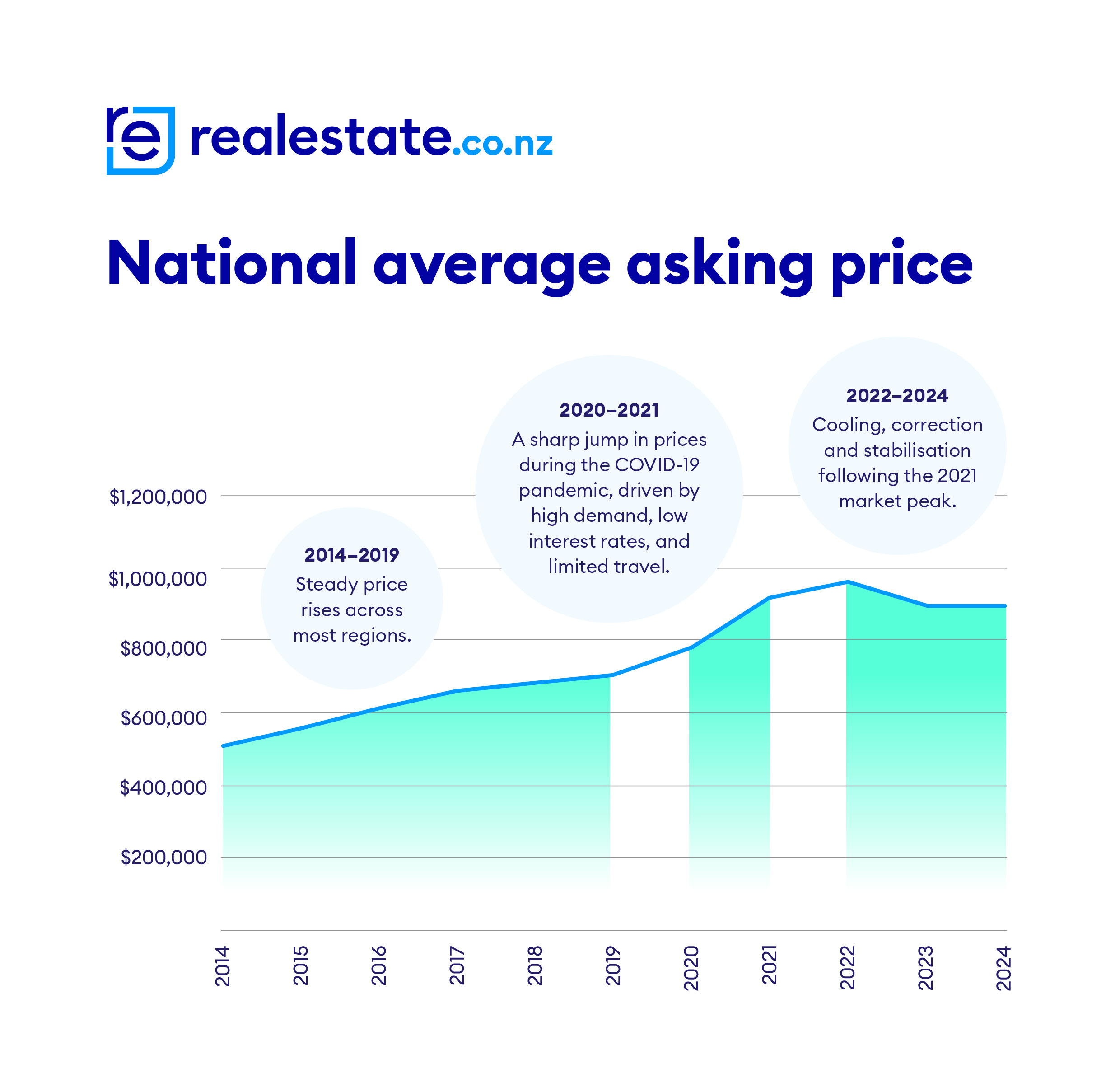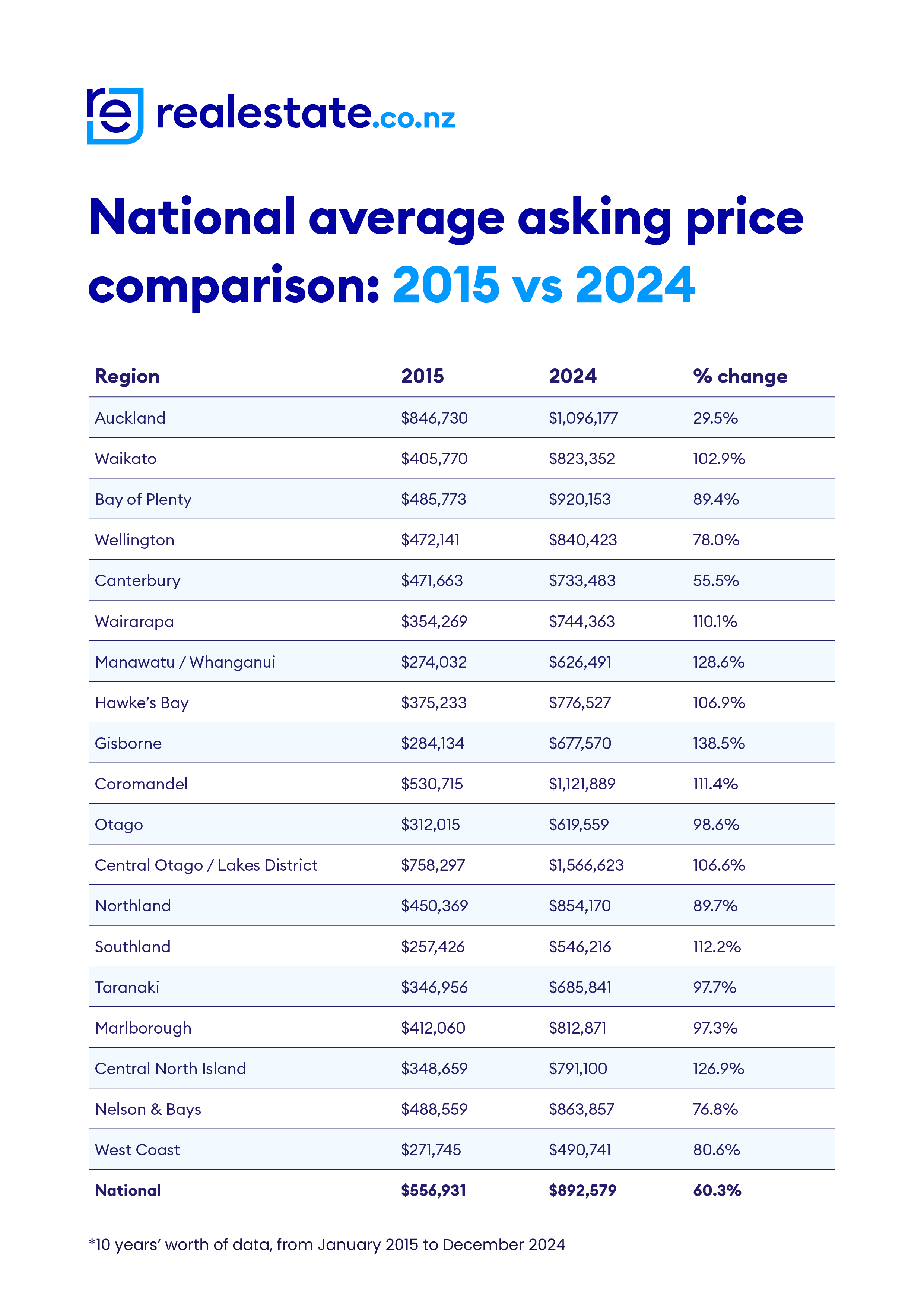Realestate.co.nz debunks NZ property doubling myth

Recent insights from realestate.co.nz challenge the widely held view that New Zealand property values always double every decade.
While this was true for nine of New Zealand’s 19 regions, where average asking prices more than doubled from 2015 to 2024, others saw significant but lesser gains.
Auckland notably lagged, with an increase of just 29.5% over the period.
National growth trends
Overall, the national average asking price saw a rise of 60.3% over the decade, increasing from $556,931 in 2015 to $892,579 in 2024.
“While the data doesn't completely confirm the ‘prices double every decade’ belief, it does show that property values have grown strongly over time,” said Vanessa Williams (pictured above), spokesperson for realestate.co.nz. “How much they’ve grown depends on where you are across the motu and what part of the property cycle we are in.”
Regional performance
The most substantial price increases were recorded outside the major urban centres.
Gisborne topped the list with a staggering 138.5% increase, followed by other regions like Manawatu/Whanganui and Central North Island, both seeing rises above 125%.
These figures highlight the growing appeal of regional New Zealand, not only as a lifestyle choice but also as an investment opportunity.
Regions such as Otago, Taranaki, and Marlborough were on the cusp of doubling their property values, with increases just shy of 100%.
“These figures show the growing appeal of regional New Zealand,” Williams said. “Over the past decade, regions like Gisborne, Coromandel, and the Central North Island have seen remarkable growth as Kiwis recognize the lifestyle and investment opportunities beyond our main centres.”
Understanding market phases
The property market in New Zealand has experienced three distinct phases over the past decade:
- 2014-2019: Characterised by steady price rises.
- 2020-2021: Marked by a sharp increase during the COVID-19 pandemic due to high demand and low interest rates.
- 2022-2024: A period of cooling, correction, and stabilisation after the market peak in 2021.

Williams commented on the cyclical nature of the market.
“Even with recent price drops, houses are worth much more than they were a decade ago,” she said. “Like any investment, property is a long game. Those who have the luxury of staying in the market are most likely to reap the gains.”

Future market outlook
Looking forward, Williams anticipates a shift in how people approach property purchases, with a greater emphasis on affordability, sustainability, and adapting to new work environments.
“We’re seeing a real change in what matters to buyers,” she said. “They’re thinking more about sustainability, lifestyle, and what they can afford. These factors will shape how our property market develops over the next decade.”



